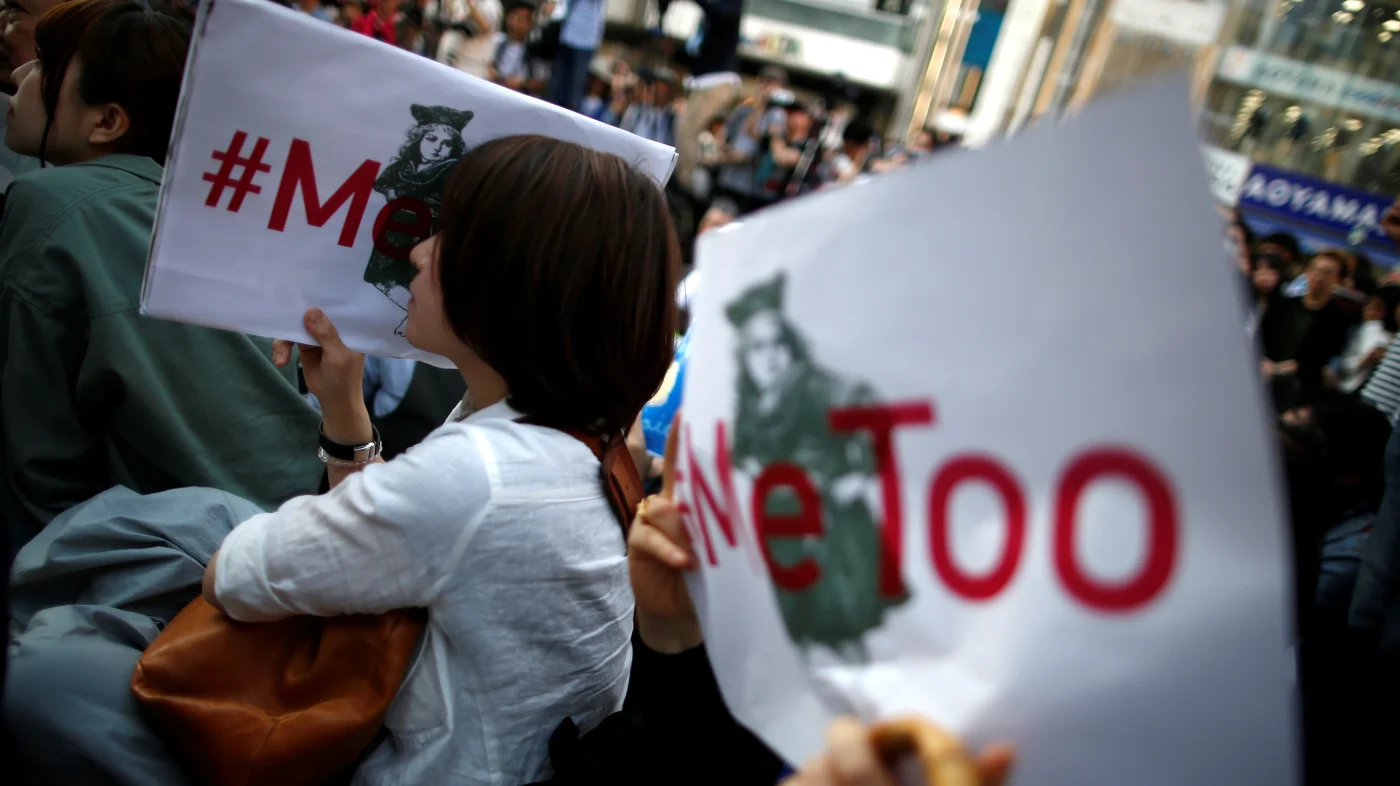In 2017, Japan revised laws regarding rape to make penalties harsher and change the standards for what is considered rape for the first time in over a century. However, they failed to change a harmful and dangerous part that still exists today: prosecutors must provide evidence that the victim actively and physically fought against the perpetrator, that it was not possible to resist. This law completely undermines the idea of “yes means yes”. Under this definition, how are victims who were under the influence of psychological manipulation supposed to get justice?
This issue was brought to light in early 2019 when a father who was accused of raping his own daughter was acquitted. The court recognized that he sexually abused and had non-consensual sex with her. Imagine your guardian or someone else you trust rapes or sexually abuse you. Would you be able to resist easily despite the abuse of power? Unfortunately, acquittals in rape cases are not uncommon in Japan. Miyako Shirakawa, a psychiatrist who was raped when she was 19 years old, shared that her body froze during the incident. This is a common reaction by many survivors and a form of psychological protection. Victims like her won’t be able to get justice under this system as they didn’t physically resist.
The underlying problem with the laws in Japan is the culture. イヤよイヤよも好きのうち, a quote that literally translates to “the more nos the fonder they feel” is a quote that has been passed down from generation to generation, sending young girls and boys the wrong message. It summarizes the culture in Japan which praises male chauvinism and romanticizes sexual boundaries being crossed. This explains the pattern in Japanese mangas, animes, movies, and TV shows – a weak girl falling in love with a violent and attractive male through initial force. Rejection isn’t seen as telling someone to stop. Instead, it is seen as a sign to show dominance and power over the girl. In addition, when a woman faces sexual assault, the blame is often put on her. Whether it is for the way she dressed or for failing to preserve her chastity, the victim often feels guilty and shameful for what has happened to her. Only 5% of rape is reported to the police in Japan. This means that a majority of victims don’t believe they will be taken seriously.
We must go against this toxic culture and reinforce the idea of consent being necessary from both sides before having sex. We can do this by supporting movies and TV shows which portray healthy relationships and by supporting a culture that respects consent. When these reforms in 2017 were enacted in Japan, parliament called for a review in 2020. If we spread more awareness about the issue with the current law and call for change to occur, the public criticism could pressure parliament to make these changes. This reform does not just impact current victims. By advocating for this change, we are creating a society where we will be listened to if it was us in the situation. So let’s work together and fight for “yes means yes”.
警察庁によると、2014年に日本の男性が配偶者やパートナーからDVを受けたという相談は181件。その後、2018年には1571件に増加したという。
この状況は現在のフェミニスト運動の問題点を指摘しています。本来、フェミニスト運動は平等な権利について戦うことにも関わらず、時に男性からの告発や無罪の可能性を無視してきた。
2016年にアンバー・ハードが悪名高い元夫ジョニー・デップから受けた虐待を公に発言してから、彼女はドメスティックバイオレンス(以下DV)の被害者の代表のようになり、アメリカ市民自由連合(ACLU)の大使、国連(UN)の講演者になった。
その一方でジョニー・デップは「DV男」「暴力男」というラベルを貼られ、決まっていた大きな映画の役を降板させられた。これらの告発の間、デップはハードが被害者でなく加害者だと主張して自分を擁護してきたし、裁判所から公表された資料の中で、彼は彼女に「暴力を受けた」と主張していますが、これら話に誰も耳を貸しませんでした。
このことを人々に尋ねても、彼らは実際に何が起こったかは測ることなく「ジョニー・デップは刑務所に行くべきだ」と言うでしょう。ハードの告発は真剣に受け止められて前向きな運動の一部だと見なされていましたが、デップの告発はDV犠牲者を心理的に追いつめて破壊させるためだと却下されました。
今年1月には夫婦の会話を録音したものが公開され、その中で、ハードはデップに物をぶつけたり投げたりすることを認めています。彼女は「あなたに身体的暴力を与えないと約束は出来ない」とも言っています。その1か月後、デップとハードが別離した後の音声も公になりました。この新しい音声でハードは、もしデップが彼女にDVを受けたと言っても誰も信じないと何度も言っています。彼女は彼をあざ笑いながら「ジョニー、世界中に言ってみたら?僕はジョニー・デップという男でDVの被害者ですって。さぁ、何人があなたの味方になるかしらね」とも言っています。
想像してみてください。誰かがもしあなたについて嘘の陳述をしたために、あなたの評判やキャリアが全て台無しになるとしたら。またはあなたが虐待を受けたとしてもそれがあなたが男だというだけで、誰にも信じてもらえなかったら。この状況は男性DV被害者が世間に認められていないということに他なりません。
#MeToo運動中に生まれた「believe women」等のスローガンは往々にして、男性達の真実ではない有罪をつくってしまうことになっています。それにも関わらず、裁判で聴衆は女性や証拠のみを信じることを選択せざる得ません。
私たちは忘れてはいけません。フェミニズムは男女間の差を無くすために戦っているのであって、ダブルスタンダードのために戦っているのではないことを。
平等を信じてDV被害者女性を支持するフェミニストとして男性の被害者にも同じきとをすべきです。だから私は#BelieveEvidenceを選ぶのです。
